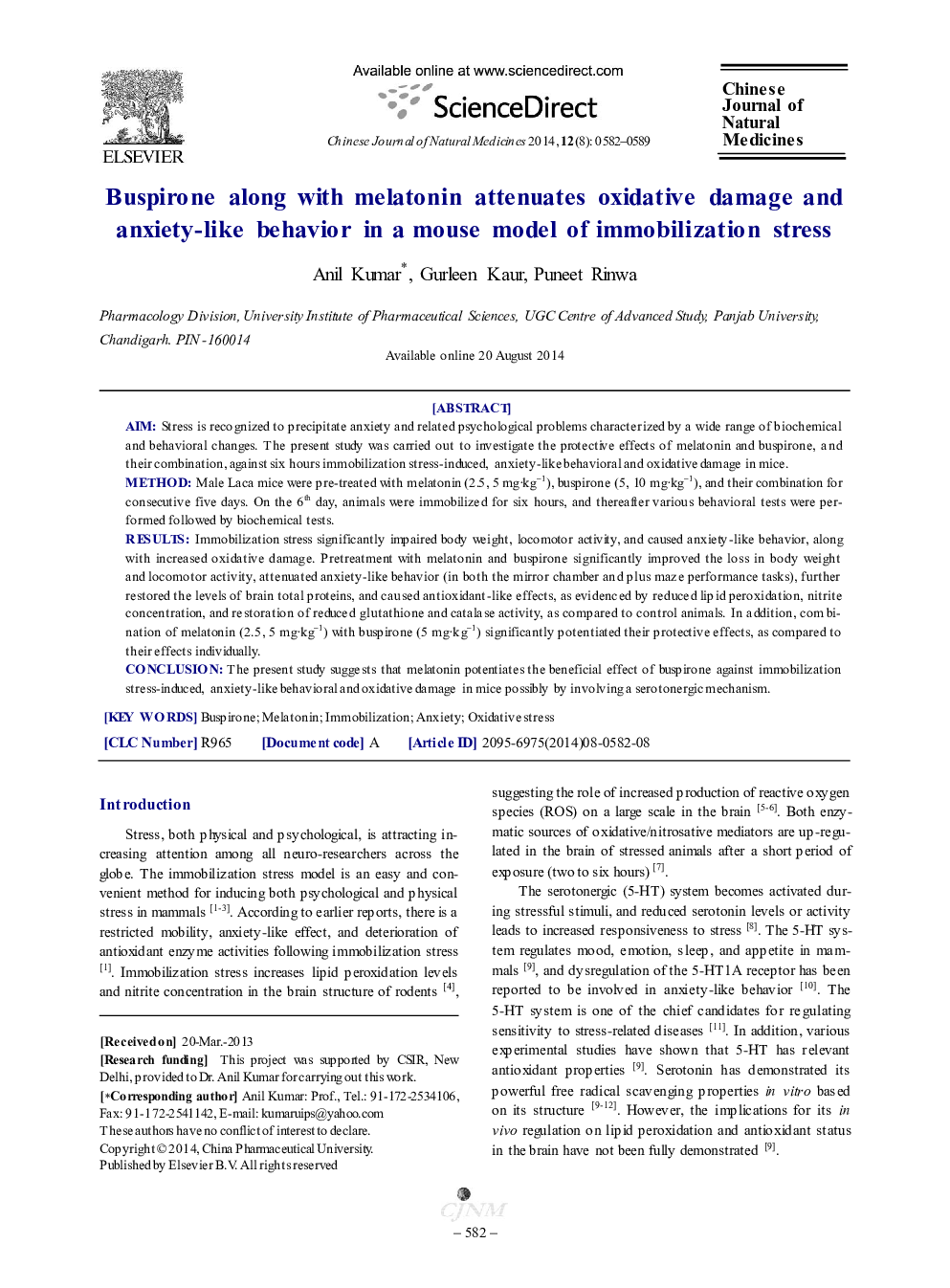| Article ID | Journal | Published Year | Pages | File Type |
|---|---|---|---|---|
| 2526334 | Chinese Journal of Natural Medicines | 2014 | 8 Pages |
AimStress is recognized to precipitate anxiety and related psychological problems characterized by a wide range of biochemical and behavioral changes. The present study was carried out to investigate the protective effects of melatonin and buspirone, and their combination, against six hours immobilization stress-induced, anxiety-like behavioral and oxidative damage in mice.MethodMale Laca mice were pre-treated with melatonin (2.5, 5 mg·kg−1), buspirone (5, 10 mg·kg−1), and their combination for consecutive five days. On the 6th day, animals were immobilized for six hours, and thereafter various behavioral tests were performed followed by biochemical tests.ResultsImmobilization stress significantly impaired body weight, locomotor activity, and caused anxiety-like behavior, along with increased oxidative damage. Pretreatment with melatonin and buspirone significantly improved the loss in body weight and locomotor activity, attenuated anxiety-like behavior (in both the mirror chamber and plus maze performance tasks), further restored the levels of brain total proteins, and caused antioxidant-like effects, as evidenced by reduced lipid peroxidation, nitrite concentration, and restoration of reduced glutathione and catalase activity, as compared to control animals. In addition, combination of melatonin (2.5, 5 mg·kg−1) with buspirone (5 mg·kg−1) significantly potentiated their protective effects, as compared to their effects individually.ConclusionThe present study suggests that melatonin potentiates the beneficial effect of buspirone against immobilization stress-induced, anxiety-like behavioral and oxidative damage in mice possibly by involving a serotonergic mechanism.
